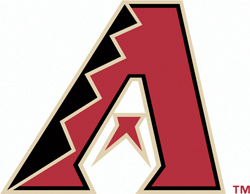 With the Maricopa County Stadium District Board voting to move forward with a sale of Chase Field to private investors, the Arizona Diamondbacks are exploring their options and plan on sending a lawyer to meet with the potential new owners.
With the Maricopa County Stadium District Board voting to move forward with a sale of Chase Field to private investors, the Arizona Diamondbacks are exploring their options and plan on sending a lawyer to meet with the potential new owners.
Leo Beus of Beus Gilbert has been retained by the team ownership in representations over Chase Field, and he plan on meeting with reps from Stadium Real Estate Partners II (owned by Atlanta-based real estate firm Integral Group and New York investment firm Park South Capital) about plan for the ballpark. From the Phoenix Business Journal:
“Nothing new has occurred from the D-backs’ perspective, as we continue to gather facts on this proposal,” Beus said in a statement provided by the team. “Now that it has been approved by the county, the team has given me the authority to speak with their representatives and we expect to interact and discuss the proposal.”
As noted, the Diamondbacks have veto power over any sale of Chase Field. And the vote yesterday by the Maricopa County Stadium District Board doesn’t commit the county to a sale of the ballpark: It begins the process, first with an appraisal that will lay the groundwork for future negotiations. The ballpark opened in 1998 and cost $350 million; it’s been appraised for far less than that, and the initial price discussed in the current sale is $60 million. Generally speaking, you don’t see private investment firms spend money on a ballpark: there is a tremendously small number of potential tenants (in this case, one: the Diamondbacks). Take, for example, SkyDome as an investment. In 1994 the Ontario provincial government sold the home of the Toronto Blue Jays to its corporate owner, Labatt, and other investors for $151 million. But Labatt and its partners never made the SkyDome number worked, and in 1999 sold the ballpark to an investment firm, Sportsco International LP, for $80 million in a bankruptcy proceeding.
And Sportsco failed where other failed as well, ending up with a sale to Rogers Communications in 2004 for $25 million. Now, not all of these transactions are strictly analogous — at one point the adjoining Renaissance Hotel was appraised as being worth more than the ballpark and then sold off in a separate transaction — but they do show the perils of private investment in ballparks by entities other than Major League Baseball teams. Indeed, one big question coming out of these discussions: if Maricopa was so hot to sell Chase Field, why not offer it first to the Diamondbacks?
Still, the fact that the Diamondback reps are willing to Stadium Real Estate Partners II reps is a sign of progress. What many baseball observers are interested in knowing: exactly why Stadium Real Estate Partners II LLC is so interested in purchasing Chase Field.
RELATED: Maricopa County Debates Sale of Chase Field to Investors; Diamondbacks: Improve Chase Field or We Will Leave
